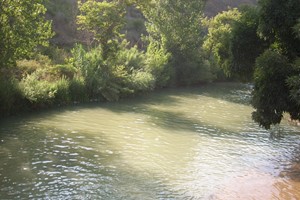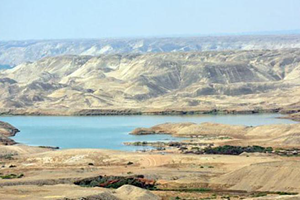Caretaker Minister of Energy, Walid Fayad, presided over a convened meeting at the Ministry, as part of the ongoing reform initiatives spearheaded by the Ministry of Energy within the water sector.
The primary objective of the meeting was to deliberate upon the latest iteration of the National Water Sector Strategy and the imminent implementing decrees derived from Water Law No. 462/2020.
In his opening address, Minister Fayad commended the dedicated efforts of the committee tasked with formulating the implementing decrees, as well as the team responsible for finalizing the National Water Sector Strategy. Furthermore, he extended gratitude to the French Development Agency for their pivotal financial support in realizing this substantial reform milestone, along with acknowledging the steadfast backing provided by the technical and legal consultants.
Fayad articulated the purpose of the meeting as a culmination of extensive endeavors spanning multiple years, culminating in a conclusive session aimed at scrutinizing the documents. This scrutiny, he emphasized, would encompass the incorporation of final comments from present stakeholders into the texts, thus preparing them for official endorsement. He reiterated the governing principle adopted since assuming office, advocating for cohesive cooperation among all relevant institutions and the ministry, advocating for a unified and coherent trajectory rather than disparate, independent operations.
Following deliberations spanning approximately six hours, Minister Fayad affixed his signature to eight implementing decrees pertaining to the Water Law, which encompassed:
- The establishment of a system and regulations governing the implementation of the water usage licensing framework.
- Development of templates for the annual reports issued by water institutions.
- Formulation of principles governing the exercise of acquired water rights.
- Specification of the judiciary's jurisdiction concerning ministry personnel and water institutions.
- Establishment of principles governing the management of non-collective wastewater.
- Determination of compensation mechanisms for water pollution.
- Regulation of associations representing irrigation water users.
Furthermore, the decree housing the finalized rendition of the National Water Sector Strategy, subsequent to requisite amendments, is slated for submission to the State Shura Council for review and subsequent implementation. This process, in adherence to constitutional protocols, will precede the eventual submission of the dossier to the General Secretariat of the Council of Ministers.
Noteworthy is the fact that the conclusive version of Lebanon's National Water Sector Strategy is underpinned by four fundamental pillars:
- Assurance of water security through augmentation of surface storage capacities, enhancement of water quality standards, and robust monitoring mechanisms.
- Enhancement of public service provisions through the expansion of potable water networks, sewerage systems, and irrigation facilities.
- Attainment of financial sustainability for water institutions through the coverage of operational, maintenance, and future investment outlays, revenue augmentation endeavors, and mitigation of technical and non-technical losses.
- Implementation of imperative reforms within the water sector, particularly those delineated in the Water Law, alongside the digitization of pertinent sectoral operations.












